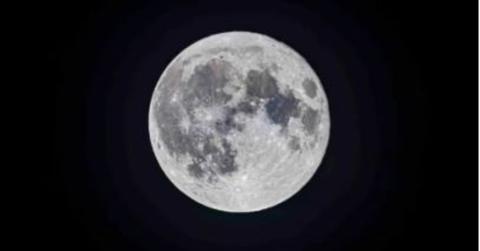Cosmic Quest: Experts Urge Missions to Earth's Mini-Moons to Unlock Solar System Mysteries

The secrets of the solar system's past may be held in mini-moons, researchers say.
Researchers, delving into the mysteries of the solar system by investigating various space rocks, aim to uncover its lost history.
A breakthrough occurred in October 2023 when NASA's OSIRIS REx mission detected water and carbon, crucial for life on Earth, on the ancient asteroid Bennu, dating back 4.5 billion years.
Among the thousands of asteroids orbiting near Earth, mini-moons are emerging as promising objects for understanding the solar system's origins.
Richard Binzel, a planetary sciences professor at MIT, suggests that mini-moons, small cosmic bodies influenced by both Earth and other solar system entities, have likely undergone a tumultuous journey in the inner solar system before settling into a relatively circular orbit near Earth, according to LiveScience.
Compared to reaching asteroids like Bennu, mini-moons offer a more accessible target for sample collection due to their proximity. While their origins remain uncertain, a prevailing theory claims that they originated from the main asteroid belt between Mars and Jupiter.
According to Paul Abell, NASA's chief scientist for small body exploration, near-Earth asteroids such as Bennu or mini-moons act as time capsules, offering insights into the early solar system's conditions.
For instance, the Japan Aerospace Exploration Agency's mission to the diamond-shaped asteroid Ryugu in 2019 revealed stardust predating our solar system and prebiotic organics containing amino acids essential for life.
Collecting samples from mini-moons could address challenges in asteroid research, where scientists primarily rely on meteorites fallen to Earth. These meteorites, though informative, may be contaminated by Earth's atmosphere, making analysis difficult.
- Asteroid That May Strike Earth in 2182 Contains Materials That Could Reveal Secrets About Human Origins: NASA
- End Days? Scientists Pinpoint Date Giant Asteroid May Hit Earth with Force of 22 Atomic Bombs
- Alien Objects on Earth? Harvard Physicist Says Mysterious Fragments Found in Ocean Come From Outside Solar System
Sample return missions like OSIRIS REx are crucial for studying volatile materials like organic molecules and water directly from their source.
Following the successful return of Bennu samples in September, NASA's focus shifts to exploring the asteroid Apophis with the OSIRIS-REx spacecraft, scheduled to arrive in 2029.
Never miss a story — sign up for the Front Page Detectives newsletter. Be on the scene the moment news breaks.
Dante Lauretta, OSIRIS-REx's principal investigator, emphasizes the importance of continued study of Bennu's rocks and dust, highlighting its wealth of carbon-rich material and water-bearing clay minerals.
The triumph of the OSIRIS-REx mission inspires future endeavors in near-Earth exploration, with mini-moons emerging as potential targets for upcoming missions, experts suggest.
Become a Front Page Detective
Sign up to receive breaking
Front Page Detectives
news and exclusive investigations.
